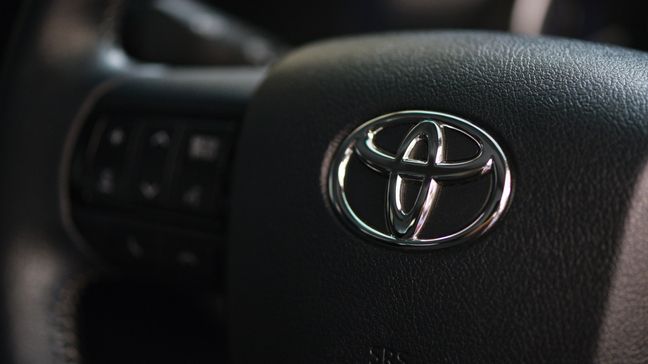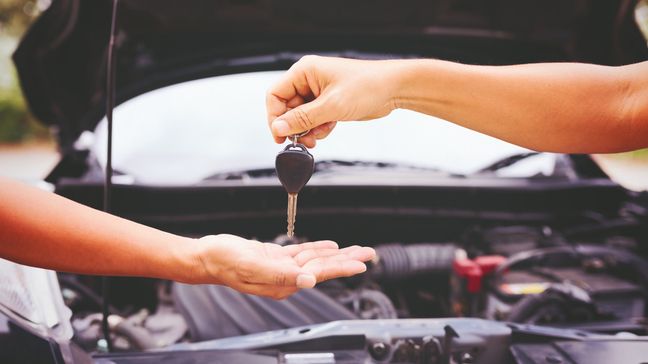You’re pretty sure you need a new car, but it’s not just the cost that intimidates you. Rather, it’s the daunting process of determining which car to buy.
According to Car and Driver, there are over 400 different new models to choose from – and that’s not including trims and other variations!
You don’t have time to research them all, but you still want that feeling of knowing you purchased the right car at the right price.
So how can you purchase the perfect car that fits comfortably within your budget?
1. Calculate your budget

The fastest way to narrow down your model options is to place an upper limit on what you can afford. It just so happens that MU30 has a pretty snazzy Car Affordability Calculator which can help you find your exact budget in minutes.
In short, I recommend the 20/4/10 ratio of car financing:
- Put at least 20% down.
- Choose a term no longer than four years.
- Keep your total car payment (interest, principal, and insurance) below 10% of your gross income.
That means that if you make $40,000 a year pre-tax, your car budget is $4,000 per year or roughly $330 per month, including insurance. Factoring in your 20% down payment and interest, you can afford a $12,000 car or so.
Now, you stretch a bit to $14,000, but I strongly recommend keeping the MSRP of your car below 35% of your gross annual income. This will ensure that your car never becomes a drain on your finances and you can keep driving stress-free.
Once you have a budget for your new car’s overall MSRP, you can begin to explore specific models.
2. Determine your preferred body style

Next, let’s narrow down your choices by choosing a body style (sedan, truck, etc.). Here are some general pros and cons to each popular body style:
| Body style | Pros | Cons |
|---|---|---|
| Sedan | Fun to drive, manual option, flooded used market | Small interior, small trunk |
| Hatchback | Fun to drive, manual option, crossover-like cargo space | Fewer used options than sedan equivalents |
| Crossover | High driving position, good cargo space, more fuel efficient than an SUV | Less fun to drive than a sedan or hatchback |
| SUV | High driving position, excellent cargo space, off road capability | High MSRP, poor MPG, usually not much fun to drive |
| Truck | Excellent cargo space, hold their value, off road capability | Simple cabins, high MSRP, stiff ride quality |
Speaking from personal experience, the one body style that my friends, family, and clients under 30 are most satisfied with is the hatchback. “Hatches” as they’re affectionately known are shorter than sedans, so they’re easier to park and more fun to drive. Plus, they offer triple the cargo space of most sedans (45 square feet vs. 15).
If you’re not sure which body style you’re into, choose multiple. Remember; there’s no rush to this process. In fact, the more cars you choose and the more test drives you take, the more likely you are to end up with a car that you love.
Once you have a rough idea of which one to three body styles you like, it’s time to browse the top-rated models in each category.
3. Browse reliable, top-rated models

Next, it’s time to start browsing specific models to find some that you like.
Browsing popular sites like Edmunds for top-ranked cars in each category is a great place to start. Keep in mind, however, that many car rating websites don’t factor in long-term reliability as much as they should. At best, they give a car’s dependability score equal weight to its 0-60 time and ride quality.
And don’t get me started on “Initial Quality” ratings – they’re bologna. An open carton of milk has great initial quality…
Don’t forget about reliability
It’s my personal opinion that reliability should always rank in the top three most important categories of any new car, if not the most important. That’s because the difference between owning a reliable versus unreliable car is measured in thousands of dollars.
For example: a 2015 Mercedes C-Class may have a nicer cabin than a 2015 Lexus IS 350, but the True Cost to Own® over five years is a whopping $7,000 higher than the Lexus.
Can I offset reliability with an extended warranty?
Extended warranties won’t protect you, either. Aside from costing $1,200 to $3,000 extra, third-party warranties are filled with more holes than Wisconsin cheese, so you’ll have a steep uphill battle getting the amounts you’re owed.
When in doubt, turn to Reddit
Another great place to find the best cars within your budget is the Reddit “subreddit” (page) r/whatcarshouldibuy. You can anonymously post your budget and top 5-10 choices to receive feedback from mechanics, professionals, owners, and more who can cite red flags or provide alternatives.
4. Test drive!

The most critical and overlooked step of the car-buying process is to test, test, test!
Test drives are free, easy, and require absolutely no financial commitment on your behalf. You’ll be surprised by which cars you end up loving more than others, and your #1 draft pick might end up dethroned!
So, where should you schedule your test drives?
If at all possible, avoid scheduling test drives at a dealership. You’ll jump through more hoops than Evil Knievel just to get in the car,